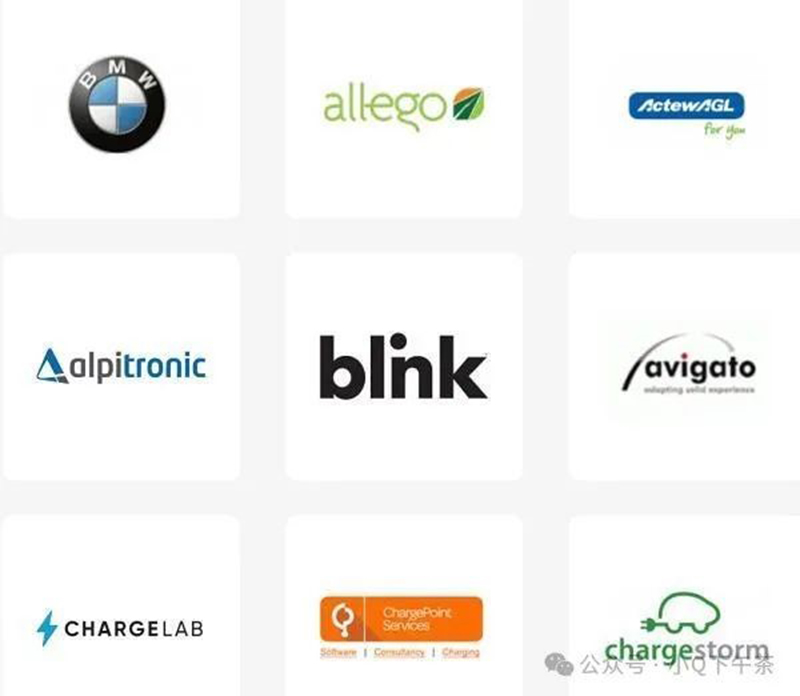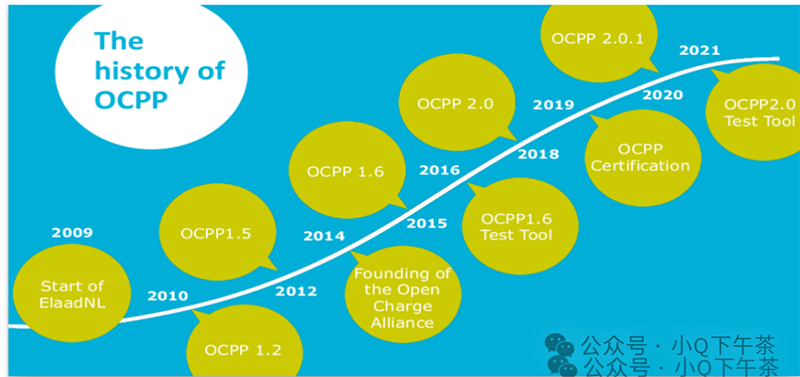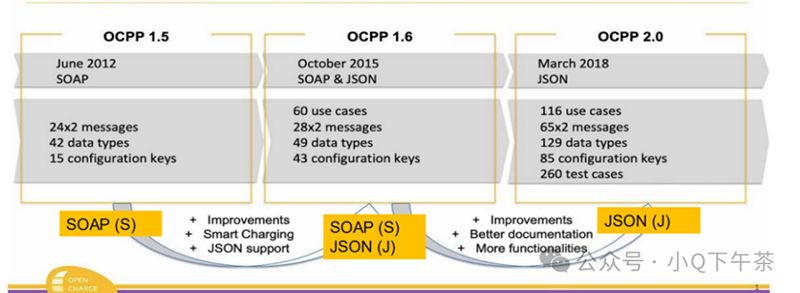1. Introduction to OCPP protocol
The full name of OCPP is Open Charge Point Protocol, which is a free and open protocol developed by the OCA (Open Charging Alliance), an organization located in the Netherlands. Open Charge Point Protocol (OCPP) Open Charge Point Protocol is used for unified communication solutions between charging stations (CS) and any charging station management system (CSMS). This protocol architecture supports the interconnection of any charging service provider’s central management system with all charging piles, and is mainly used to solve various difficulties caused by communication between private charging networks. OCPP supports seamless communication management between charging stations and the central management systems of each supplier. The closed nature of private charging networks has caused unnecessary frustration for large numbers of electric vehicle owners and property managers over the past many years, prompting widespread calls across the industry for an open model. Advantages of the OCPP protocol: open for free use, preventing lock-in of a single supplier (charging platform), reducing integration time/workload and IT issues.
2. Introduction to OCPP version development
In 2009, the Dutch company ElaadNL initiated the establishment of the Open Charging Alliance, which is mainly responsible for promoting the open charging protocol OCPP and the open smart charging protocol OSCP. Now owned by OCA; OCPP can support all types of charging technologies.
3. OCPP version introduction
As shown below, from OCPP1.5 to the latest OCPP2.0.1
(1) OCPP1.2(SOAP)
(2)OCPP1.5(SOAP)
Since there are too many private protocols in the industry that cannot support unified service experience and operational interconnection between different operators’ services, OCA took the lead in formulating the open protocol OCPP1.5. SOAP is limited by the constraints of its own protocol and cannot be promoted quickly on a large scale.
OCPP 1.5 communicates with the central system via the SOAP protocol over HTTP to operate charging points. It supports the following features: Local and remotely initiated transactions, including metering for billing
(3) OCPP1.6(SOAP/JSON)
OCPP version 1.6 adds the implementation of JSON format and increases the scalability of smart charging. The JSON version communicates through WebSocket, which can send data to each other in any network environment. The most commonly used protocol on the market currently is version 1.6J.
Supports JSON format data based on the websockets protocol to reduce data traffic (JSON, JavaScript Object Notation, is a lightweight data exchange format) and allows operation on networks that do not support charging point packet routing (such as the public internet) . Smart charging: load balancing, central smart charging and local smart charging. Let the charging point resend its own information (based on the current charging point information), such as the last metering value or the status of the charging point.
(4) OCPP2.0 (JSON)
OCPP2.0, released in 2018, improves transaction processing, increases security, and device management: adds smart charging functions, for topologies with energy management systems (EMS), local controllers, and for integrated smart charging of electric vehicles, Topology of charging stations and charging station management systems. Supports ISO 15118: Plug-and-play and smart charging requirements for electric vehicles.
(5) OCPP2.0.1 (JSON)
OCPP 2.0.1 is the latest version, released in 2020. It offers new features and improvements such as support for ISO15118 (plug and play), enhanced security, and overall performance improvements.
If want to know more about this, please feel free to contact us.
Tel: +86 19113245382 (whatsAPP, wechat)
Email: sale04@cngreenscience.com
Post time: Apr-18-2024







